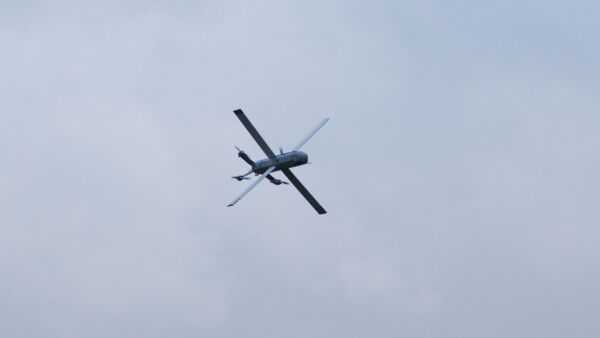
Image of Helsing's HX-2 strike drone. (Helsing)
Munich-headquartered defence company Helsing is planning on ‘mass-producing' its new artificial intelligence (AI)-enabled HX-2 unmanned aerial vehicle (UAV) in the UK as part of a GBP350 million (USD445 million) investment, a company spokesperson confirmed to Janes on 3 December.
The “AI-enabled, software-defined hardware” HX-2 UAV would be produced at newly built facilities.
There is also “considerable British tech, IP [intellectual property], and developers involved in the system [HX-2], which we hope to now make available to the British Armed Forces”, the spokesperson told Janes over email on 4 December.
“Tens of thousands of AI-enabled drones can be produced per year. Discussions are ongoing with our partners. We are expecting to announce further details early next year,” the spokesperson told Janes in a phone conversation on 3 December.
The mass production of thousands of AI-enabled UAVs is part of Helsing's investment into the UK over the next five years, according to a UK Ministry of Defence (MoD) press release published on 2 December.
The HX-2 strike UAV is capable of hitting military targets at a range of up to 100 km, according to Helsing. Possible payloads include multi-purpose, anti-tank, and anti-structure munitions. The onboard AI, according to information provided by the company, “ensures the HX-2 is immune to electronic warfare (EW)”. This would mean that if the guidance data connection with the human operator is broken, the UAV would still be able to search for, identify, and engage targets. The jamming resistance capabilities, according to Helsing, were developed and tested in Ukraine. Over the years, Ukrainian UAVs have faced significant challenges due to Russian electromagnetic jamming techniques, which disrupt communications, rendering UAVs ineffective.
Looking to read the full article?
Gain unlimited access to Janes news and more...



